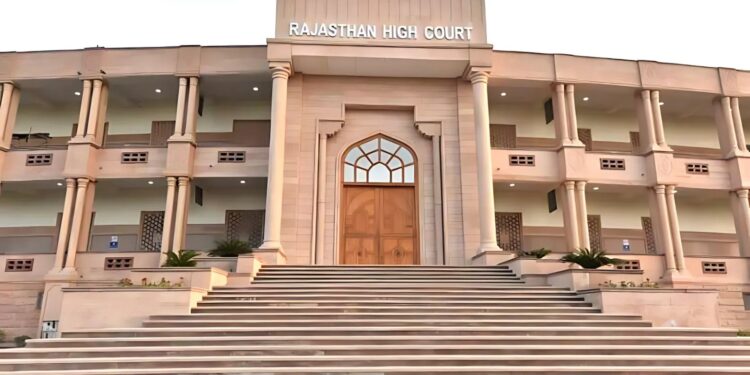The Rajasthan High Court clarified that the use of certain words, such as ‘Bhangi,’ ‘Neech,’ ‘Bhikhari,’ and ‘Mangani,’ does not inherently invoke caste connotations and thus does not justify charges under the Scheduled Castes and Scheduled Tribes (Prevention of Atrocities) Act, 1989 (SC/ST Act), in a recent judgment [ Achal Singh & Ors. v State of Rajasthan & Anr. ].
Justice Birendra Kumar, presiding over the case, discharged four petitioners accused of using these terms during an altercation with public officials involved in removing encroachments. The Court emphasized that the allegations lacked any direct reference to caste or intent to degrade individuals based on their caste identity.
Background of the Case
The case involved an incident in January 2011 in Jaisalmer, where government officials inspected alleged encroachments on public land. The petitioners allegedly obstructed the officials, using derogatory language during the process. This led to the registration of a criminal case under Sections 353, 332, and 34 of the Indian Penal Code (IPC), as well as Section 3(1)(X) of the SC/ST Act.
Initially, the police concluded that the allegations lacked merit and submitted an unfavorable report. However, a protest petition led to a trial court framing charges against the accused under the SC/ST Act. The petitioners then approached the High Court to have the case quashed.
Key Arguments and Court’s Observations
The petitioners argued that:
1. The words used were not caste-specific.
2. They were unaware of the officials’ caste identity.
3. The incident did not occur publicly, and no independent witnesses were present to substantiate the claim.
The Court found these arguments compelling. Justice Kumar observed:
– The question words were not caste names, nor was there evidence to suggest the petitioners intended to insult or humiliate the public servants based on their caste.
– No evidence indicated that the accused were aware of the officials’ caste.
– The absence of independent witnesses weakened the claim that the incident occurred in public view, a critical requirement under the SC/ST Act.
The Court further noted, “The allegations, on their face, show that the petitioners’ actions were a reaction to perceived irregularities in the officials’ actions during the encroachment removal, rather than an attempt to demean them on caste grounds.”
Court’s Decision
In its November 12 order, the Court discharged the petitioners from the charges under Section 3(1)(X) of the SC/ST Act. However, it upheld the charges under IPC Sections 353 and 332, stating that there was sufficient evidence to proceed with the trial regarding obstruction and use of criminal force against public servants.
The Court remarked, “There is prima facie evidence of obstruction in the discharge of official duties by the respondents. For this Act, the criminal prosecution under Sections 353 and 332 of the IPC shall continue.”
Broader Implications
This judgment underscores the importance of distinguishing between generic derogatory terms and caste-specific insults under the SC/ST Act. It reiterates that to invoke the Act; there must be a clear intent to insult or intimidate someone based on their caste in a public setting. The absence of such intent or public humiliation, as demonstrated in this case, invalidates the application of the Act.
Representation
Advocate Leela Dhar Khatri represented the petitioners, while Public Prosecutor Surendra Bishnoi appeared on behalf of the State.
This ruling provides a nuanced interpretation of the SC/ST Act, highlighting that its provisions are not meant to criminalize every use of derogatory language unless it explicitly targets caste identity. The decision also reinforces the need for robust evidence, including independent witnesses, to support such allegations in Court.

















